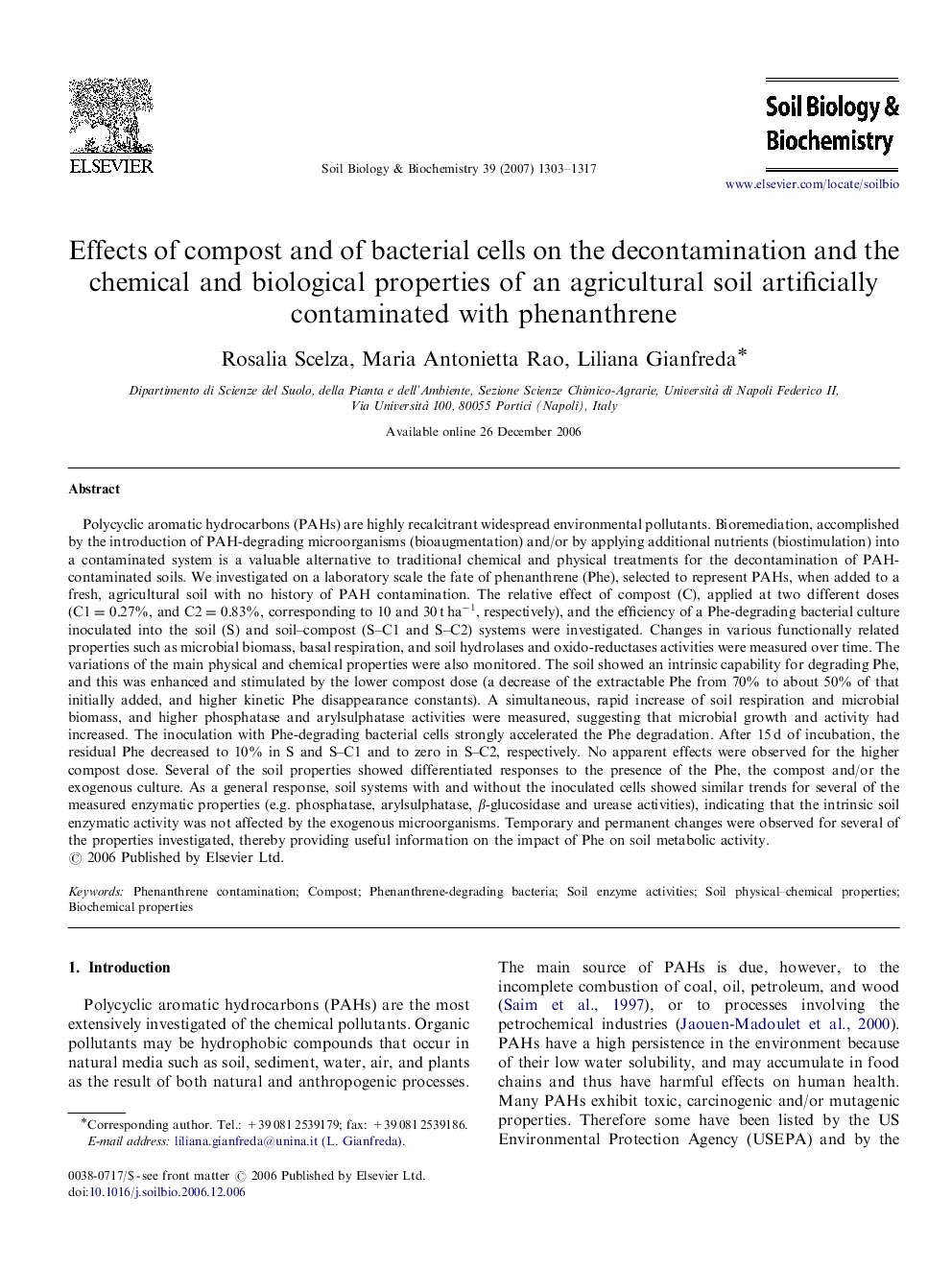| کد مقاله | کد نشریه | سال انتشار | مقاله انگلیسی | نسخه تمام متن |
|---|---|---|---|---|
| 2027060 | 1070080 | 2007 | 15 صفحه PDF | دانلود رایگان |

Polycyclic aromatic hydrocarbons (PAHs) are highly recalcitrant widespread environmental pollutants. Bioremediation, accomplished by the introduction of PAH-degrading microorganisms (bioaugmentation) and/or by applying additional nutrients (biostimulation) into a contaminated system is a valuable alternative to traditional chemical and physical treatments for the decontamination of PAH-contaminated soils. We investigated on a laboratory scale the fate of phenanthrene (Phe), selected to represent PAHs, when added to a fresh, agricultural soil with no history of PAH contamination. The relative effect of compost (C), applied at two different doses (C1=0.27%C1=0.27%, and C2=0.83%C2=0.83%, corresponding to 10 and 30 t ha−1, respectively), and the efficiency of a Phe-degrading bacterial culture inoculated into the soil (S) and soil–compost (S–C1 and S–C2) systems were investigated. Changes in various functionally related properties such as microbial biomass, basal respiration, and soil hydrolases and oxido-reductases activities were measured over time. The variations of the main physical and chemical properties were also monitored. The soil showed an intrinsic capability for degrading Phe, and this was enhanced and stimulated by the lower compost dose (a decrease of the extractable Phe from 70% to about 50% of that initially added, and higher kinetic Phe disappearance constants). A simultaneous, rapid increase of soil respiration and microbial biomass, and higher phosphatase and arylsulphatase activities were measured, suggesting that microbial growth and activity had increased. The inoculation with Phe-degrading bacterial cells strongly accelerated the Phe degradation. After 15 d of incubation, the residual Phe decreased to 10% in S and S–C1 and to zero in S–C2, respectively. No apparent effects were observed for the higher compost dose. Several of the soil properties showed differentiated responses to the presence of the Phe, the compost and/or the exogenous culture. As a general response, soil systems with and without the inoculated cells showed similar trends for several of the measured enzymatic properties (e.g. phosphatase, arylsulphatase, β-glucosidase and urease activities), indicating that the intrinsic soil enzymatic activity was not affected by the exogenous microorganisms. Temporary and permanent changes were observed for several of the properties investigated, thereby providing useful information on the impact of Phe on soil metabolic activity.
Journal: Soil Biology and Biochemistry - Volume 39, Issue 6, June 2007, Pages 1303–1317